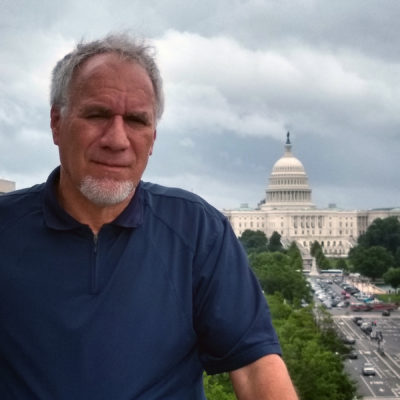
Veterinarian and professor turned whistleblower and animal welfare hero, Dr. James Keen was once a proponent of industrial animal agriculture but is now advocating for a more humane way. Dr. Keen formerly worked at a facility in Nebraska called “MARC”—a U.S. Department of Agriculture (USDA) research facility that devotes taxpayer dollars to meat industry goals of increasing livestock productivity. After years of toeing the line, Dr. Keen could have no more. Research conducted at the facility was barbaric and cruel. He tried to reform MARC from within, but when his reports of neglect and abuse of animals fell on deaf ears with MARC officials, Dr. Keen was left with no choice but to reach out to the media. He sought the help of Michael Moss at the New York Times. The resulting 2015 investigative article outraged many and the public outcries were deafening.
MARC’s research focus on improving production efficiency tested the biological limits of cattle, pigs, and sheep. Experiments at the facility allowed lambs to die in the cold, calves to be born weak and deformed, piglets to be crushed by their mothers, and, in a particularly horrific incident, allowed a cow to be mounted to death by several bulls. The Animal Welfare Act doesn’t apply to USDA research facilities like MARC, so there was little to no oversight.
In the 2015 New York Times article, Dr. Keen stated: “They pay tons of attention to increasing animal production, and just a pebble-sized concern to animal welfare… And it probably looks fine to them because they’re not thinking about it, and they’re not being held accountable. But most Americans and even livestock producers would be hard pressed to support some of the things that the center has done.”
As a result of Dr. Keen’s whistleblowing, Federal legislation was proposed, but not passed, that would have applied the Animal Welfare Act to federal research facilities like MARC. USDA officials inspected the facility, and the Secretary of Agriculture called a halt to new studies at MARC until proper oversight could be established. The USDA Office of Inspector General (OIG)’s report concluded that the Agricultural Research Service’s oversight of the MARC facility was inadequate and outlined necessary reforms. The report specifically mentioned that staff feared retaliation for reporting problems, and thus rarely did.
After Dr. Keen experienced retaliation, he sought legal counsel and arrived at an agreement with his employer. FIC is currently supporting Dr. Keen in a non-legal capacity.